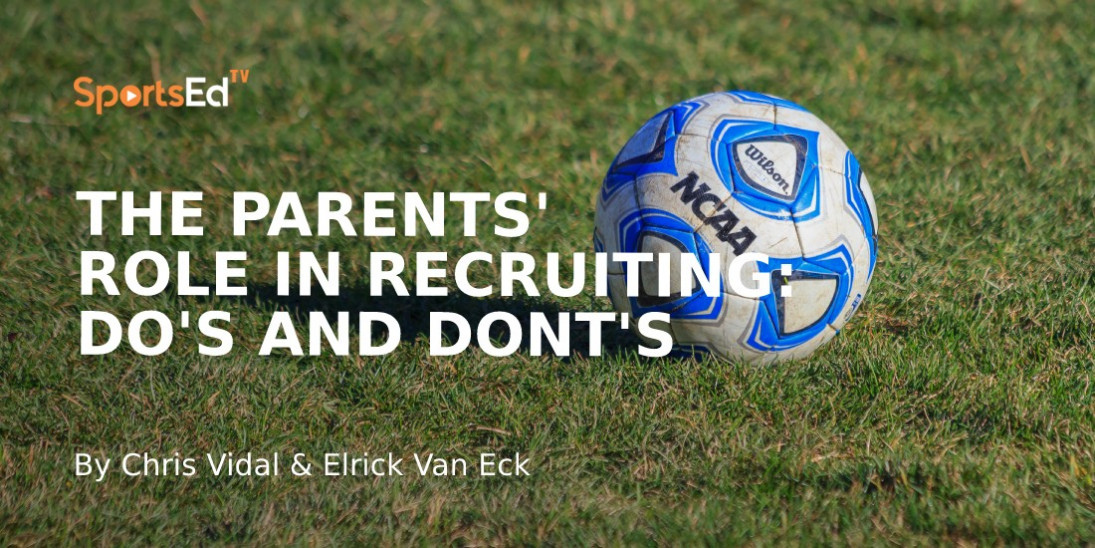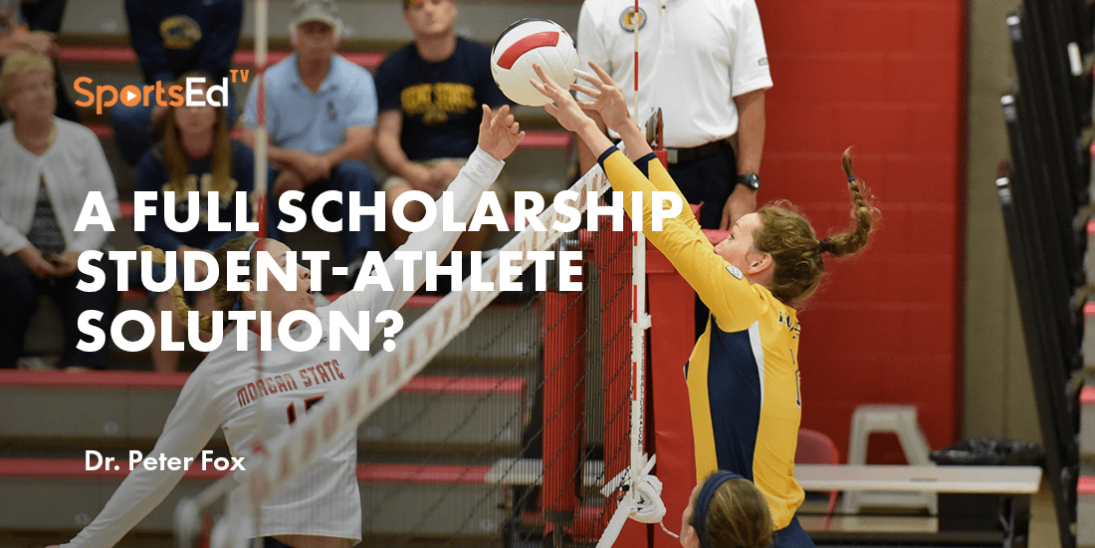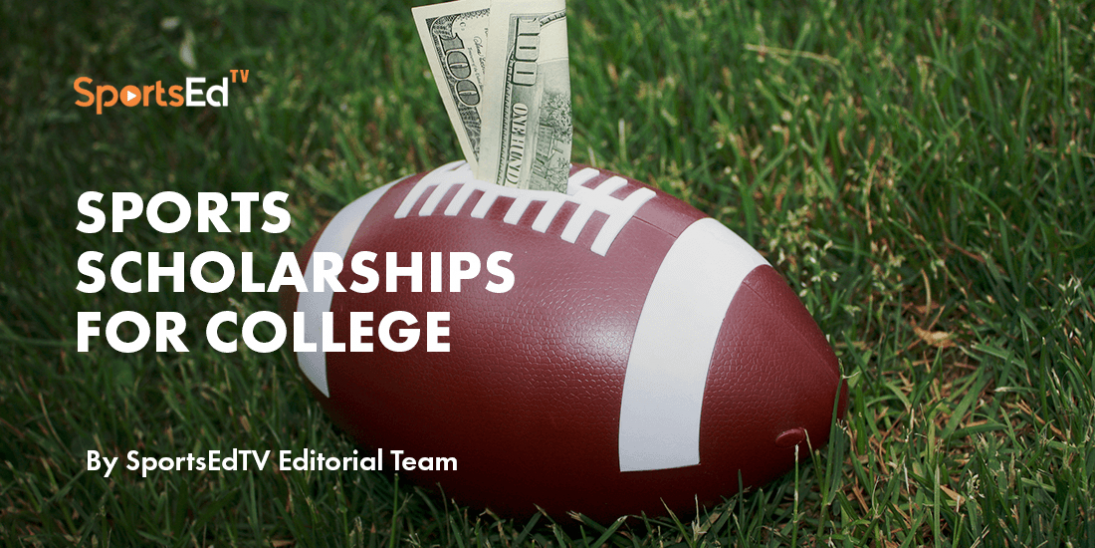Scholarship
Welcome and thanks for visiting...

Do’s and Dont's of Scholarships

Chris Vidal: Hey, guys, Chris of ASM Scholarships, and in today's video, I've also brought along a former Division One College Coach Elrick Van Eck
In today's video, we're going to be talking about how parents make mistakes and also can help with the recruitment process. What were the biggest mistakes you saw parents making in this process for their daughters or sons, coach?
Coach Elrick Van Eck, They took the lead too much.
CV: And by that example, what did they do
EVE: Something I always tell people is college coaches are not recruiting you, they're not recruiting me, they're not recruiting the parents they are recruiting the play player.
Yeah, so the player needs to take the lead. He needs to get on the phone needs to be timely. You need to write good emails. He needs to take this lead and he needs to show these guys that he's done his homework on their programs and the coaches, and he needs to sell how badly he wants to be there, just as badly as we are going to try and help them get there. But we can't do everything for him, right? We can send you in the right direction. We can give you background on the schools, on the coaches, on the schedule.
CV: Yeah, exactly. When you connect an athlete to a coach, you don't want the mom and dad being the lead, you want the athlete being the first one to do what we tell them to do.
EVE: Absolutely. Now, having mom and dad on the phone at some point in time is important because it is a family decision, right? But the athlete has to take the lead.
CV: So when should mom and dad get on the phone with the coach? When would you recommend that?
EVE: Probably the second or the third phone call, OK? Yeah, because that's when we're going to start talking about scholarships. That's when we start talking about official visits. That's we're going to talk about where are they going to live or what meal plans look like and what flights into certain airports look like. But in the beginning, it's all about the player. It's all about the player to the coach and showing interest and showing that he or she did homework and trying to prove to this coach how badly they want to be there.
CV: Now what's another typical big mistake your parents make in the process?
EVE: You know what? It all stems from the same thing. It's always just being too involved. It's just being too involved. Again, I can never, never emphasize this too much. Coaches are recruiting players. They're not recruiting parents.
CV: Well, how else can a parent support their athlete in this process?
EVE: They can. They can help them in terms of their time management. They can help them in terms of how to write proper emails with grammar and things like that. Yeah, I like the little things like that look professional, right? Because if you put yourself in a coach suit real quick, you get an email from a kid and that's well written. That just stands out.
CV: I notice parents sometimes are asking too fast for a scholarship.
EVE: Oh, that happens all the time, right? Yeah, one hundred percent. Exactly. So it's mostly like just easing into everything, right? I've got to get to know you first, right? I get to know you. You get to know me. Do you like what I have to offer? A player says, yes, coach. I like the facilities, the schedule.
CV: Isn't it like mom and dad? You don't just meet and get married, right? Like you date before a scholarship, you don't date and then you don't get married straight away or get scholarships right away. You know each other first. And then when it's the right time, you ask them for the scholarship?
EVE: I'm going to drop a big word right now, but it's a synergy thing, right? It's right. I coach. I want to be at your school and coaches play. I want you to play. Yeah. And then once you get all of those things out the way, it's like, OK, the nitty-gritty. Yeah. The scholarship money talks about flights, official, whatever the case might be. And that's usually when the parents start getting involved because you can't send a 16-year-old kid on his right. So right. But any case? The biggest mistake the parents make is they are just too involved too early.
CV: The last thing. I want to ask you to help parents out there who are keen to be involved. A very important decision for them when the recruitment trip comes. And should a parent go along with their kid? And then how should they kind of be on the sidelines? Like how? Because I could see that's when they kind of maybe get pushy sometimes.
EVE: No, I think once that official visit or that happens, I think once you get that the parent can be as involved as they want to be, OK? Because coaches now obviously rolled out the red carpet would love to have you here.
Ask all the questions you want to ask because it's a big family decision. Like, I want to know where my kid's going to go... So once you get to that point, coaches prove to you that he wants you to be here just as badly as you potentially want to be there, and then the parents can get involved and ask all the questions they want to ask.
And so no, the parents then have to be involved. But in the beginning, the more a parent has been involved, at least in my experience, it just chases me away?
CV: So and I just thought of another last question, but I think it'll be very useful for the parents out there. Let's say now that we've got through, that the athletes got their scholarship, they're in college for one year into it and things are going wrong. For that reason. Maybe the kid's not getting the grades right or not playing well. Coach is, maybe not going to offer you as much scholarship for year two. It's just gone wrong or something's gone wrong. Should the parent get involved in that sense or should it be up to the athlete? What should a parent do in that situation if something is going wrong?
EVE: They should always, always, always encourage the son or daughter to go to the coach first. Have that conversation with the coach first. If something still doesn't sit right with the coach or the player, then let's get the families involved.
But I think the best thing that a parent can do for their son or their daughter in college is to become an ally for the coach. And let's all work together because you picked a specific school, whether it's for whatever reason. But the coach was a determining factor in that at some point in time. Let's all be a team. And if something isn't going right like you just mentioned, why don't we all work together to get it figured out? I'm not saying pick the coach's side, but the more the parents and the player and the coach can be a team. Yeah, and all work towards the betterment of their son or daughter. That's always going to be best.
Speaker1: Well, Eric, thanks again for your input. I know you do great stuff for the athletes and parents and help them navigate this process.



